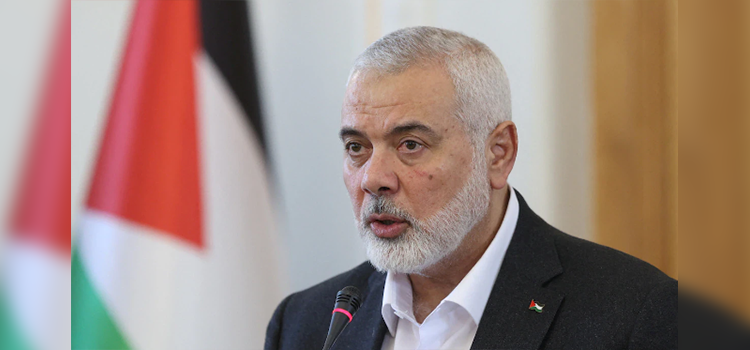In a significant escalation of the ongoing conflict, Hamas leader Ismail Haniyeh was assassinated early Wednesday morning in Iran. The Palestinian group confirmed the strike, labelling it a “severe escalation” that would ultimately fail to achieve its intended goals.
Iran’s Revolutionary Guards verified Haniyeh’s death, which occurred mere hours after he attended the swearing-in ceremony of the country’s new president. The Guards announced an investigation into the assassination. As of now, Israeli authorities have not issued any comments on the incident.
The White House also did not immediately respond to requests for a statement regarding Haniyeh’s death.
This development follows closely on the heels of Israel’s announcement of the killing of a Hezbollah commander, allegedly responsible for a deadly strike in the Israeli-occupied Golan Heights. This sequence of events dims the prospects for any near-term ceasefire agreement in Gaza.
“This assassination by the Israeli occupation of Brother Haniyeh is a grave escalation that aims to break the will of Hamas,” stated senior Hamas official Sami Abu Zuhri in an interview with Reuters. He emphasised that Hamas would persist in its current path, expressing confidence in their eventual victory.
Haniyeh, typically based in Qatar, has been a prominent figure in Hamas’ international diplomacy. His leadership has been pivotal, especially since the conflict ignited by Hamas’ attack on Israel on October 7. Haniyeh’s presence in the conflict has been marked by personal loss; three of his sons were killed in an Israeli airstrike in Gaza.
Since his appointment as the head of Hamas in 2017, Haniyeh has operated primarily from Turkey and Qatar, circumventing the travel restrictions imposed on Gaza. This mobility has allowed him to engage in ceasefire negotiations and maintain communication with Hamas’ ally, Iran.
The assassination of Haniyeh represents a critical juncture in the Israeli-Palestinian conflict, further complicating efforts towards peace and stability in the region.
